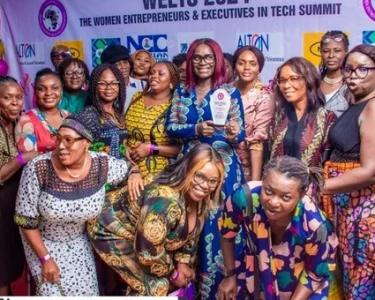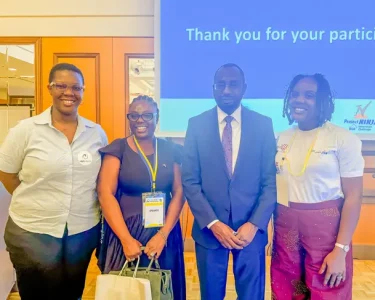The South African Government has given telecoms operators a marching order on the effective rollout of 5G and ^G technology.
Communications and Digital Technologies Minister Khumbudzo Ntshavheni gave South African telecommunications companies five years to deploy 4G and 5G networks across the country.
Ntshavheni was speaking during the State of the Nation Address debate in Cape Town.
This, as the local operators ramp up 5G network coverage in the country, which was held back for several years as a result of delays in the auctioning of the much-needed high-demand spectrum.
The spectrum was finally released by the Independent Communications Authority of South Africa (ICASA) last year, and since then, the operators – Vodacom, MTN, Telkom and Rain – have largely focused on providing 5G in the big cities.
The majority of the country still largely depends on 3G and 4G/LTE connectivity.
“The telecommunications companies have five years to complete the rollout of 4G and 5G networks, including to the rural areas – this from the spectrum release through BDM [Broadcasting Digital Migration] to connect South Africa to high-speed broadband,” the minister said.
As countries across the globe intensify research and development efforts for the commercial launch of 6G in 2030, local pundits recently told ITWeb that South Africa and its African counterparts are inadequately prepared for the sixth-generation technology.
This is due to the fact that SA and the rest of the continent are still awaiting a complete rollout of the 5G network.
According to the minister, government has concluded the consultations on the analogue switch-off for the BDM project in full compliance with the order of the Constitutional Court.
This, after broadcaster Etv took the minister to the apex court to delay the analogue switch-off date to give sufficient time to complete set-top box installations for qualifying households, to still enjoy free-to-air TV channels and access to vital news and information.
In her speech, Ntshavheni said the South African Broadcasting Corporation (SABC) is starting to take advantage of the increase in the number of channels on the digital terrestrial television (DTT) platform that is the direct outcome of the BDM.
“SABC News has launched a 24-hour news channel on the DTT platform in all indigenous languages, meaning that for the first time in the history of broadcasting in this country, millions of South Africans no longer wait for evening news bulletins and current affairs shows to receive news and information in their own languages.
“We are engaging with the regulator to find mechanisms to ease the participation of more content producers as television channel owners, and the technology is ready to increase channel capacity on the DTT platform.”
Ntshavheni pointed out that digital migration is enabling the transformation of the broadcasting sector to ensure edutainment and infotainment become the base for a viable and sustainable creative industry.
Sentech will soon launch a home-grown over-the-top (OTT) platform that will be anchored by the National Electronic Media Institute of South Africa (Nemisa) but will be available to other content producers, she noted.
“Nemisa continues to train upcoming content producers, including training unemployed youth on podcasts, vlog and storytelling using mobile devices. Our goal is to eventually make this platform a home for quality films, documentaries and children’s stories, in addition to SABC Plus.”
According to the minister, the OTT platform will launch in the first quarter of the 2023/24 financial year.
In the meantime, Ntshavheni added, through Broadband Infraco (BBI) and funded by the Broadband Access Fund of the Presidential Employment Stimulus, government is facilitating the rollout of 3 000 community WiFi hotspots across 16 districts of the country, and connecting 50 000 households on fibre-to-the-home and WiFi technologies.
“In addition, through the SA Connect programme, we are going to rollout 14 024 community WiFi hotspots in the 2023/24 financial year across 16 districts. The other 19 515 community WiFi hotspots will be rolled out in the 2024/25 financial year in 36 districts – completing the over 33 000 community WiFi hotspots that will enable South Africans to have universal access to the internet by 2025.”
Ntshavheni pointed out BBI is partnering with internet service providers (ISPs) as part of government’s plan to transform the telecommunications sector by strengthening the emergence of viable and sustainable mobile virtual network operators.
The ISPs participating in the SA Connect programme will backhaul on the Sentech/BBI infrastructure network, she said.
“The costs to communicate are not decreasing at the pace that government wants and to mitigate this, in the first quarter of the new financial year, we are going to issue a policy direction to regulator ICASA to study models that other countries are adopting to fast-track the reduction of cost to communicate without relying on market forces.”
ITweb




